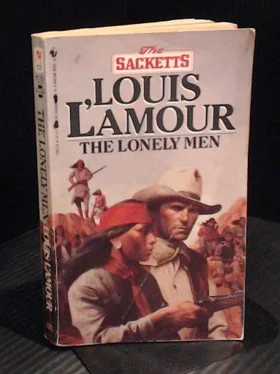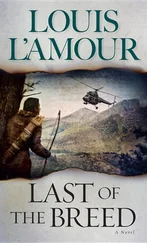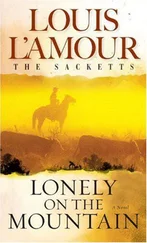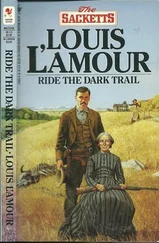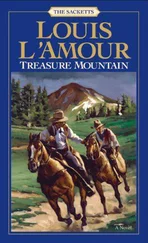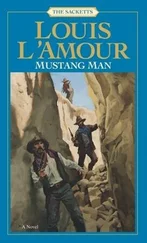Louis L'Amour - The Lonely Men
Здесь есть возможность читать онлайн «Louis L'Amour - The Lonely Men» весь текст электронной книги совершенно бесплатно (целиком полную версию без сокращений). В некоторых случаях можно слушать аудио, скачать через торрент в формате fb2 и присутствует краткое содержание. Жанр: Старинная литература, на английском языке. Описание произведения, (предисловие) а так же отзывы посетителей доступны на портале библиотеки ЛибКат.
- Название:The Lonely Men
- Автор:
- Жанр:
- Год:неизвестен
- ISBN:нет данных
- Рейтинг книги:4 / 5. Голосов: 1
-
Избранное:Добавить в избранное
- Отзывы:
-
Ваша оценка:
- 80
- 1
- 2
- 3
- 4
- 5
The Lonely Men: краткое содержание, описание и аннотация
Предлагаем к чтению аннотацию, описание, краткое содержание или предисловие (зависит от того, что написал сам автор книги «The Lonely Men»). Если вы не нашли необходимую информацию о книге — напишите в комментариях, мы постараемся отыскать её.
The Lonely Men — читать онлайн бесплатно полную книгу (весь текст) целиком
Ниже представлен текст книги, разбитый по страницам. Система сохранения места последней прочитанной страницы, позволяет с удобством читать онлайн бесплатно книгу «The Lonely Men», без необходимости каждый раз заново искать на чём Вы остановились. Поставьте закладку, и сможете в любой момент перейти на страницу, на которой закончили чтение.
Интервал:
Закладка:
That's a woman or girl riding that horse."
Rocca rested his big hands on the pommel. "I think you are right," he said. "I think so."
"A woman?" Battles was incredulous. "It don't stand to reason."
"Did Dan Creed have a wife? Or a daughter?" I asked.
Rocca looked around at me. "I don' know, Tell. I tell you, I don'."
I dropped to the ground. "Sit tight," I said. "I want to see what she went to look at."
A step or two and it was dark and green under the trees. A step or two more and I was lost to them, waiting back there for me. I could see a pressed-down leaf here, and the kicked-over damp, dead leaves, scuffed by a passing boot. The trail was easy, but it took time, for I scouted the trees around me as I moved.
Suddenly -- a running man could scarcely have stopped in time -- I was on the brink of a cliff. Not sheer, but a steep falling away, something a man could climb down if he could find foothold and used his hands, or if he could slide.
It was maybe a couple of thousand feet down to the bottom, and there was a meadow, the greenest you ever saw, and a pool with trees around it. It was a small hanging valley that opened out over an enormous canyon. There were three cooking fires in sight, and a dozen Apaches.
First I squatted down, easing down so my movement would draw no attention, and then I studied the camp through a manzanita growing on the rim.
Squaws were working, children playing. They felt secure here. Nobody had ever followed them into this country, nobody had ever found them here before. For years, for generations, they had been coming here after their raids, after stealing the cattle, the horses, and the women of the Mexicans. Stealing their food, too, and bringing it here and to other places like this ... there must be many of them.
Little Orry was in one of them. How long could we look before they caught us?
How long, then, could we expect to live?
But Orry was my brother's son, and I was a Sackett, and in the Sackett veins the blood ran strong and true. It was our nature and our upbringing.
A few minutes longer I squatted there, watching the camp. Not staring, for staring can be felt, and will make an animal or an Indian uneasy. Then I went back through the trees.
"It's a rancheria," I said, "but I doubt if it is the one we want."
Chapter 6
Whoever it was who had come up the mountain before us had spent a good bit of time studying that camp. There were a-plenty of tracks, knee impressions, and the like, so we could see whoever it was had stayed there quite some time. And then that person had mounted up and ridden on.
We, too, moved on, and the trail we now followed was a deer trail ... or maybe one made by big horn sheep, which leave a somewhat similar track. The only other tracks on the trail were those small hoof prints, or sometimes, when the rider got on and walked, were boot tracks.
We entered soon into a wild and broken country, past towering masses of conglomerate and streams of a dull opalescent water, slightly bitter to the taste, but nonetheless good for drinking. Many times we were forced to dismount and lead our mounts, for large limbs or out-thrusts of rock projected over the trail.
Among some pines we pulled off and got down from our saddles. Tampico Rocca hunkered down and stared at the ground. Spanish Murphy glanced over at me. "Tell ... you think we're going to find that boy?"
"Uh-huh."
Well, I knew what he was feeling. The quiet. It was getting us. We were in the heart of Indian country, and we were all jumpy. There wasn't one of us who didn't know what it would mean if we were seen. It would mean a running fight... And our only choice would be to try to get away.
Once it was known we were around we'd have no chance to get close to those children. So far we'd had luck, with the skill of Rocca to provide a good part of it -- his skill and his knowledge of the country.
Presently we moved on, and now we saw Indian tracks from time to time. Up to now we had been traveling high, lonely country where Indians seldom went, but now we were descending slowly, getting into the areas where there was game, and where at any time we might encounter Indians.
"There's another rancheria ahead," Rocca soon said.
This one was also in a hollow, with a towering cliff behind it, and low, rolling pine-clad hills around. The rancheria lay in a nest of boulders and trees, with a small stream curving around the encampment. Even as we came up through the pines, several horsemen arrived. They rode into the area accompanied by a small swirl of dust and dropped to the ground. There were six Apaches in the group, four of them armed with bows, two with rifles.
Two of them were carrying chunks of meat, probably from slaughtered cattle. A third was handing down some articles of clothing, evidently stripped from some Mexican or his wife -- from our distance we could not determine which.
Suddenly Battles grabbed my arm and pointed. Several children had come up, carrying bundles of sticks. At least one appeared to be a white boy, his face was partly turned from them. He was a tall youngster, perhaps eight or nine years old.
This could be the place. Whatever else we did, we must talk to that boy.
I was conscious of the fresh smell of the pines and of crushed pine needles underfoot. There was a faint smell of smoke from the camp, and I could make out the sound of Indian voices speaking. Inside me, I was still -- waiting, thinking.
If there were other white children around, that boy would know about them. But what if he had already become close to being an Apache? Taken young enough, many American or Mexican children had no wish to leave the Apaches. To speak to him was a risk, but it must be done.
Spanish, he looked over at me. "We got us a job, boy," he said.
"I never figured it to be easy." I studied the rancheria, and I did not feel happy about the situation.
"We're too close," Rocca said. "We'd better move back. If the wind changed a mite, the dogs could smell us."
So we moved back among the trees and, weaving around a little, we found ourselves a tree-shaded hollow with a lot of boulders around and some big trees.
It was a perfect place to hide, and we were out of the wind there.
But I was worried. When I traveled alone, as I most often did, I had nobody to worry about but myself, and if I got into trouble there was only my own scalp to lose. This shape-up was entirely different, for these men had come along only to help me. If anything happened to them I'd have it on my mind.
We were here, though, and we had a job to do. "Rocca," I said, "is it likely that boy yonder would ever be left alone?"
"I doubt it. Depend on how long he's been with them, and how much they've come to trust him. There's a chance maybe."
"He'd be likely to know about other white youngsters, wouldn't he?"
"It's likely. Word gets around, and the Apache children would know, and they'd be apt to speak of it. At least when I was a boy in those Apache camps I knew most of what went on."
For the time being there was nothing much we could do, so the others stretched out to catch a little sleep, and I worked up to the bluff to get a better look than we'd had before.
The camp was quiet. The squaws never stopped working, of course, always busy at something, and a few youngsters played around. One of the Apache braves we had seen ride into camp sat cross-legged in front of his wickiup. He was a stoop-shouldered but strongly made man of about my own age, and he had a new Winchester that was never far from his hand. Even here, in their own hide-out, they never let up.
After a while I returned to camp and Spanish took my place up on the bluff.
Under a low tree I settled down for some rest.
When I awoke I fought myself back to reality with an effort. I'd been dog-tired, and whilst I usually was ready to wake up on the slightest sound, this time I had really slept.
Читать дальшеИнтервал:
Закладка:
Похожие книги на «The Lonely Men»
Представляем Вашему вниманию похожие книги на «The Lonely Men» списком для выбора. Мы отобрали схожую по названию и смыслу литературу в надежде предоставить читателям больше вариантов отыскать новые, интересные, ещё непрочитанные произведения.
Обсуждение, отзывы о книге «The Lonely Men» и просто собственные мнения читателей. Оставьте ваши комментарии, напишите, что Вы думаете о произведении, его смысле или главных героях. Укажите что конкретно понравилось, а что нет, и почему Вы так считаете.
